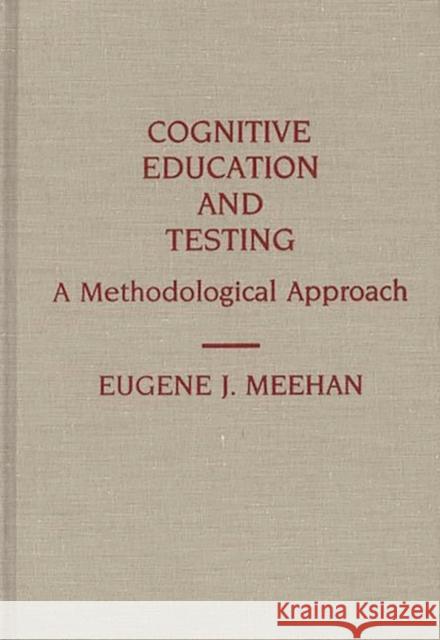Cognitive Education and Testing: A Methodological Approach » książka
Cognitive Education and Testing: A Methodological Approach
ISBN-13: 9780313278891 / Angielski / Twarda / 1991 / 224 str.
Eugene J. Meehan's immediate purpose in this study is to explain the essentials of a promising approach to measuring and improving cognitive performance, and to summarize the exceptional results obtained thus far from years of experimental applications in the United States and abroad. The approach depends upon two primary constructs: first, a concept labeled cognitive skill or cognitive competence, which is identified with the individual's capacity to acquire, assess, and apply knowledge; and second, a theory of knowledge that is limited in scope but focused on the development and use of knowledge in the conduct of human affairs.
Meehan's extended purpose, the reason for being concerned with measuring and improving cognitive competence, is the glaring inadequacy of intellectual performance of those educated in the United States and elsewhere, compared to current needs. This study details the strong theoretical base, examines the process of testing cognitive skill, and investigates the relationship between cognitive skill and real-world achievement. Meehan argues that a useful measure of the concept of cognitive skill testing can be created and stabilized, and that the skills included can be improved selectively and systematically. The book concludes with a discussion of the principal areas of uncertainty, including the long-range effects of cognitive training and the factors that influence retention--particularly in societies that maintain a generally anti-intellectual environment, or where methodological and analytical criticism is not a regular part of everyday practice, even among the well-educated. The significant research, testing, and results which show actual progress in improving educational practice as detailed in this book will interest methodologists, educators, and social scientists.











